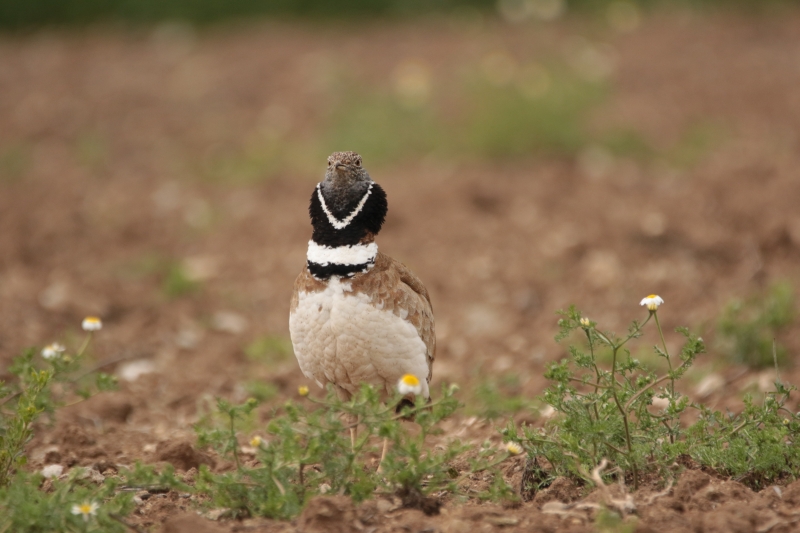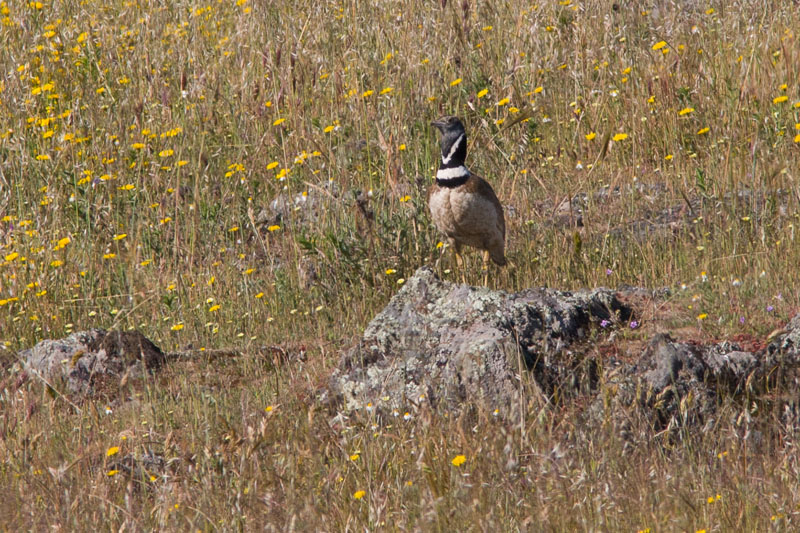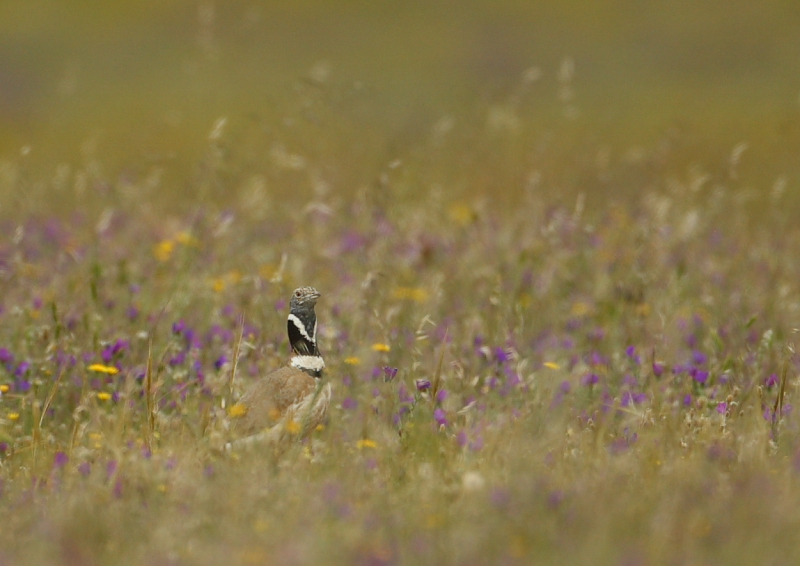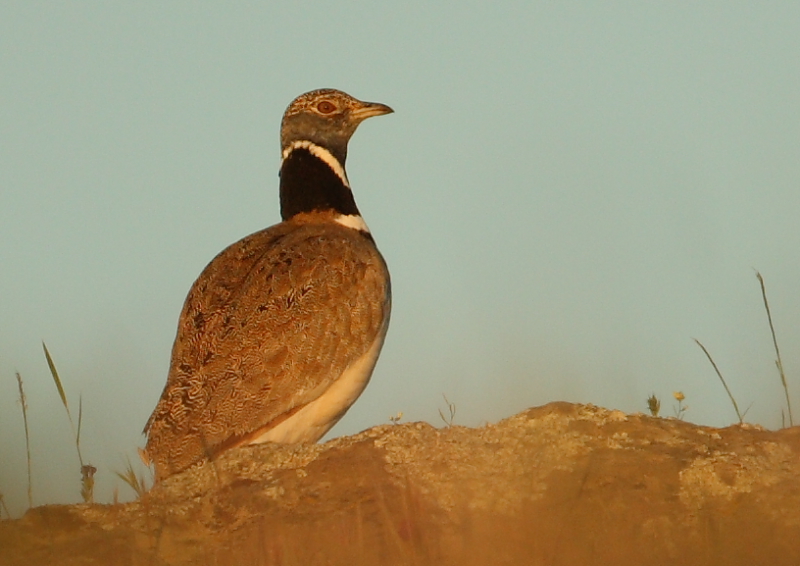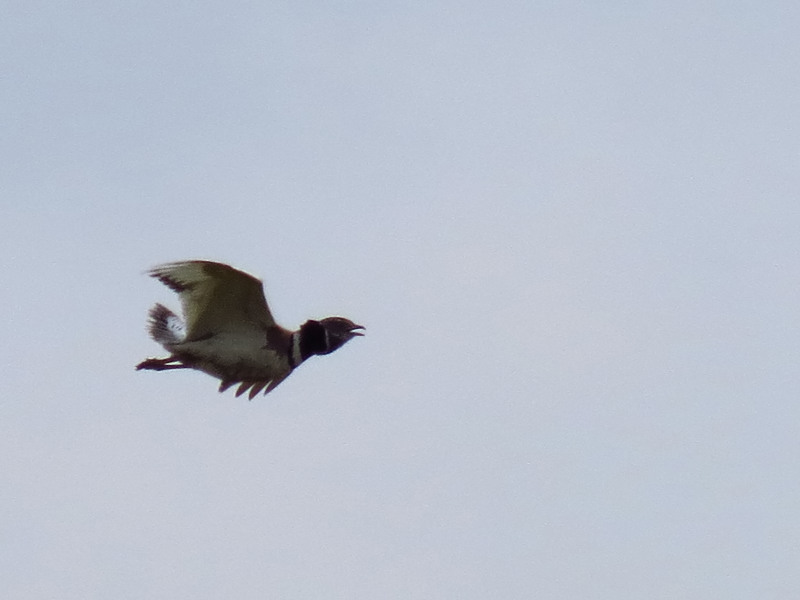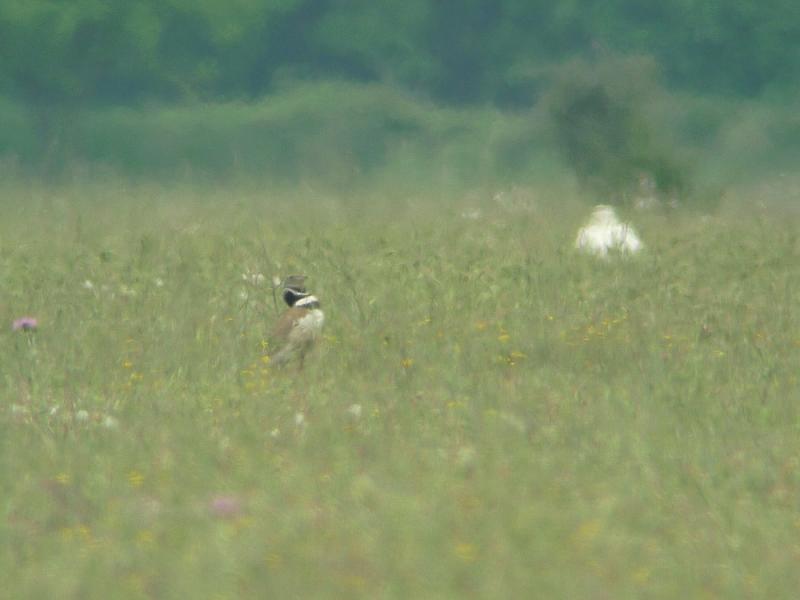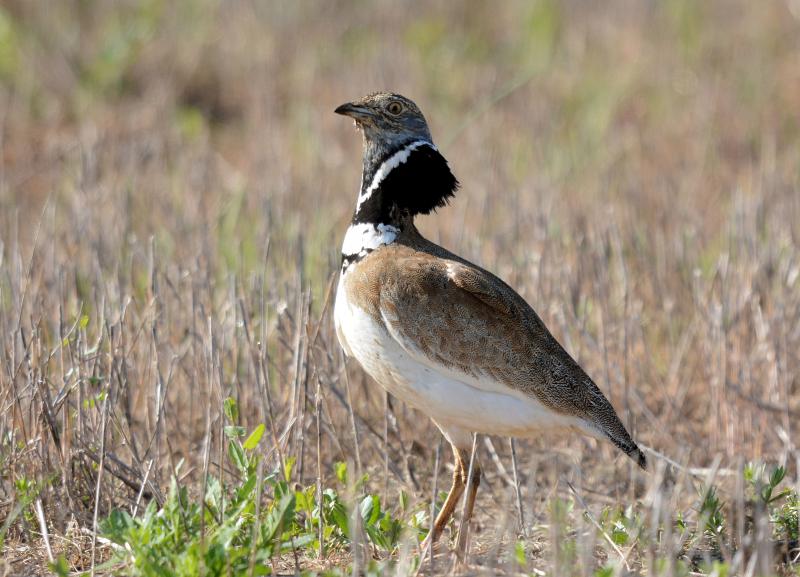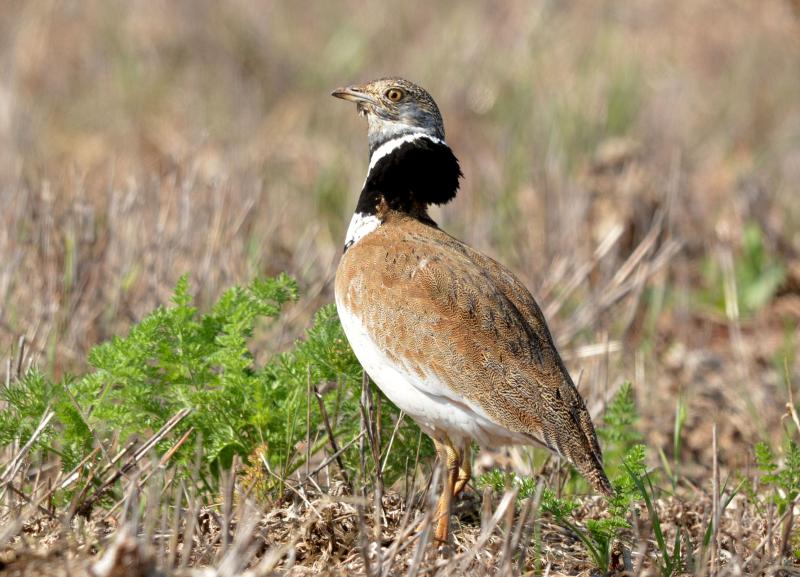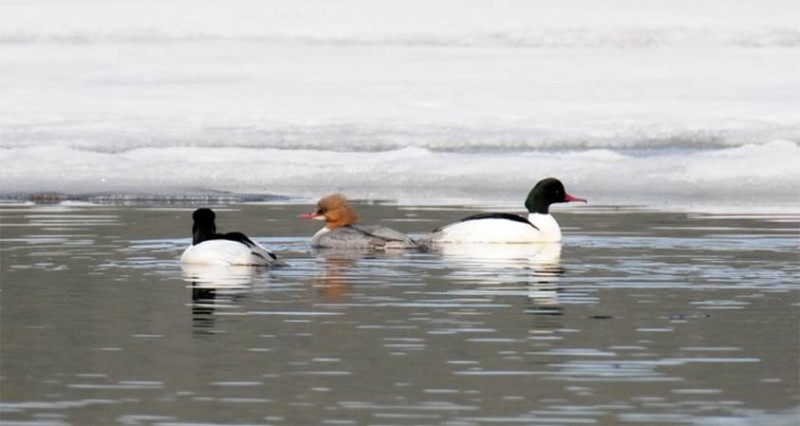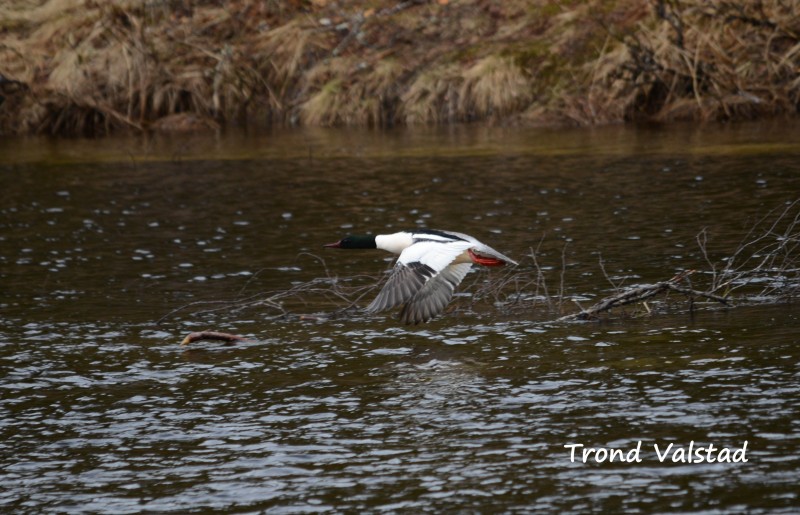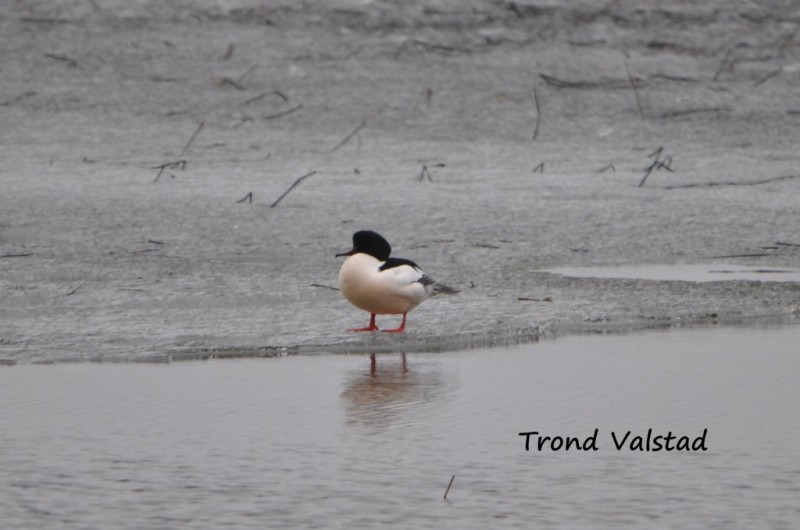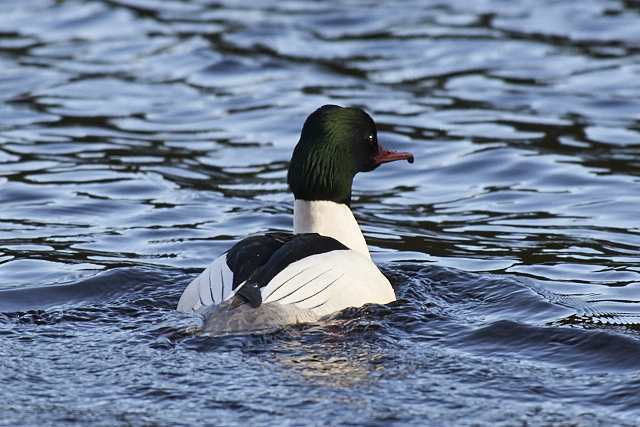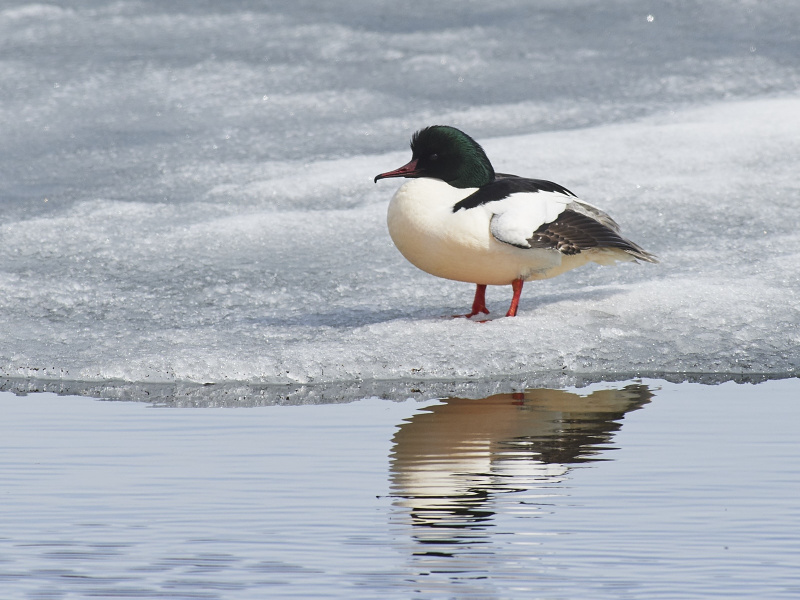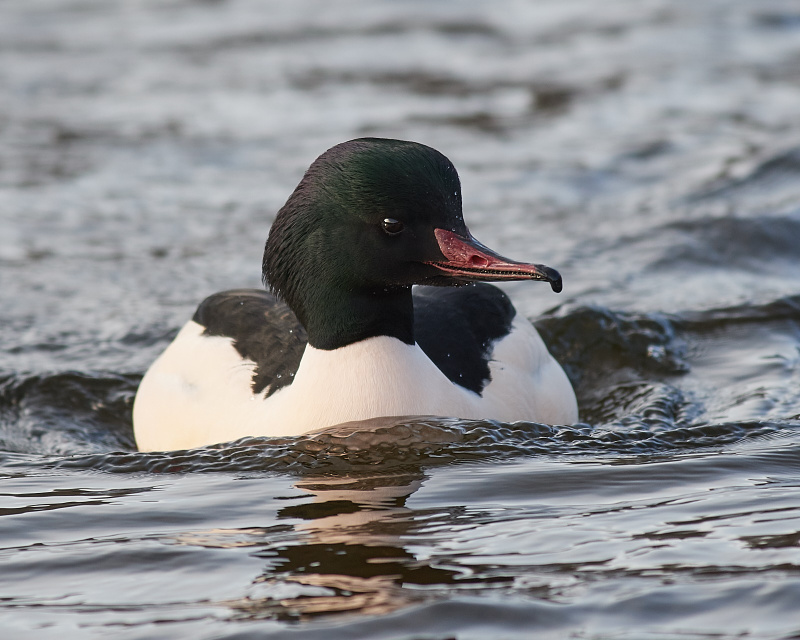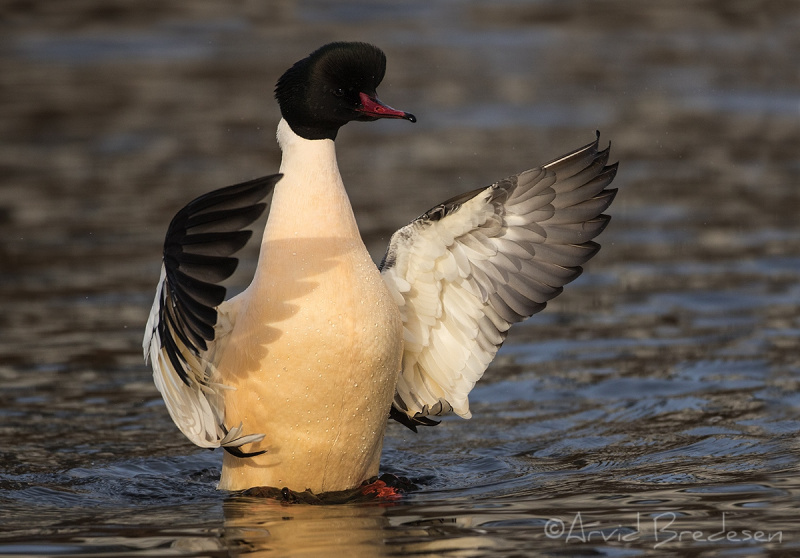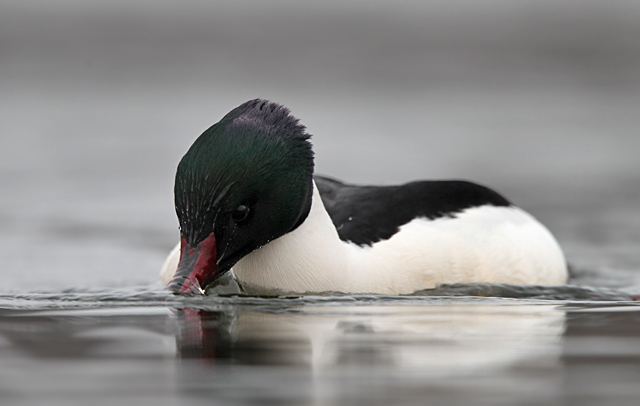Little Bustard (Tetrax tetrax)
Goosander (Mergus merganser)
Small bustard about the seize of female pheasant. Stocky body, small head, slender neck and fairly long legs. Male: Grey head, black neck with two white rings, finely vermiculated upperparts and white underparts. Odd short p7 in male. Female lacks black neck and all upperparts are a vermiculated sandy brown. Young and non-breeding males similar to females, but often with a hint of white breast-band and more clearly defined white underparts. Told from Great Bustard in flight by clear cut black wing-tips and primary coverts in sharp contrast to white wing, and white secondaries. Flushed birds take off in noisy, grouse-like manner with rapid wing-beats and interspersed short glides on bowed wings. Longer flight with quick wing-beats mostly below level of back.
Sound:Wings in male produces a whistling sound when flying and in display flight. Flushed birds give a hoarse grunt "ugh". Female sometimes utters e mewing "miee". Male song a short and dry "prrrt", that is far reaching. Given from ground in display in 5 - 10 seconds intervals with raised neck-feathers and jumps in the air.
Song, wing-noise:
Distribution:
Wikipedia: map (se also Xeno-canto below)
Ecology:Birdlife ecology
Links:
Observation.org Latest observations
Image search Flickr NB! May give other species
CCCC-photo:Viskens Michel, Licence,Link.
CC-photo:Hans Verdaat, Licence,Link.
Largest sawbill. Male: white to pinkish white plumage with black back and dark green head. Female with grey body and brown head. Sharp division between brown head and whitish breast, together with contrasting white chin, distinguishes it from female Red-breasted Merganser. Both sexes with hook at tip of bill, dense crest and swollen base of bill. Wing-bars all white. Flight silhouette more diver-like than duck-like.
Sound:Male: Mostly heard when courting. A twanging, disyllabic "whip-ooooo", first syllable ascending and second whistle-like and rapidly falling. Female: A coarse "ahrrr ahrrrr", or a raspy drawn "ah-ahrrrrrr ah-ahrrrrr", slightly rising, then falling in pitch. Also various cackling sounds.
Display-call male:
Distribution:
Wikipedia: map (se also Xeno-canto below)
Ecology:Birdlife ecology
Links:
Observation.org Latest observations
Image search Flickr NB! May give other species
CCSounds:Recorded by Paul Driver,http://www.xeno-canto.org ,CC license

 English
English Albanian
Albanian
 Armenian
Armenian
 Bulgarian
Bulgarian
 Catalan
Catalan
 Croatian
Croatian
 Czech
Czech
 Danish
Danish
 Dutch
Dutch
 Finnish
Finnish
 French
French
 Georgian
Georgian
 German
German
 Greek
Greek
 Hungarian
Hungarian
 Italian
Italian
 Latvian
Latvian
 Lithuanian
Lithuanian
 Macedonian
Macedonian
 Norwegian
Norwegian
 Polish
Polish
 Portuguese
Portuguese
 Romanian
Romanian
 Russian
Russian
 Sami : Lule sami
Sami : Lule sami
 Sami : North sami
Sami : North sami
 Sami : South sami
Sami : South sami
 Scientific names
Scientific names
 Serbian
Serbian
 Spanish
Spanish
 Swedish
Swedish
 Ukrainian
Ukrainian


